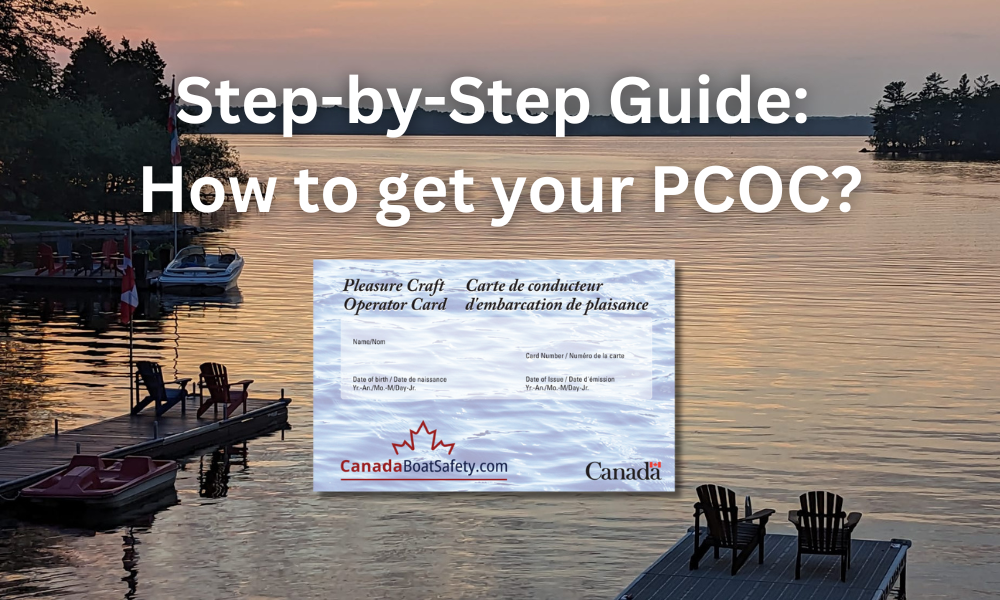If you’re planning to take the helm of a boat in Canadian waters, it’s important to understand the requirements for legally operating a watercraft. In Canada, anyone who operates a powered watercraft must have proof of competency, known as a Pleasure Craft Operator Card (PCOC). This applies to all types and sizes of boats with motors, including small electric trolling motors and larger engines. Here’s a detailed guide on how to get your boating certificate in Canada.
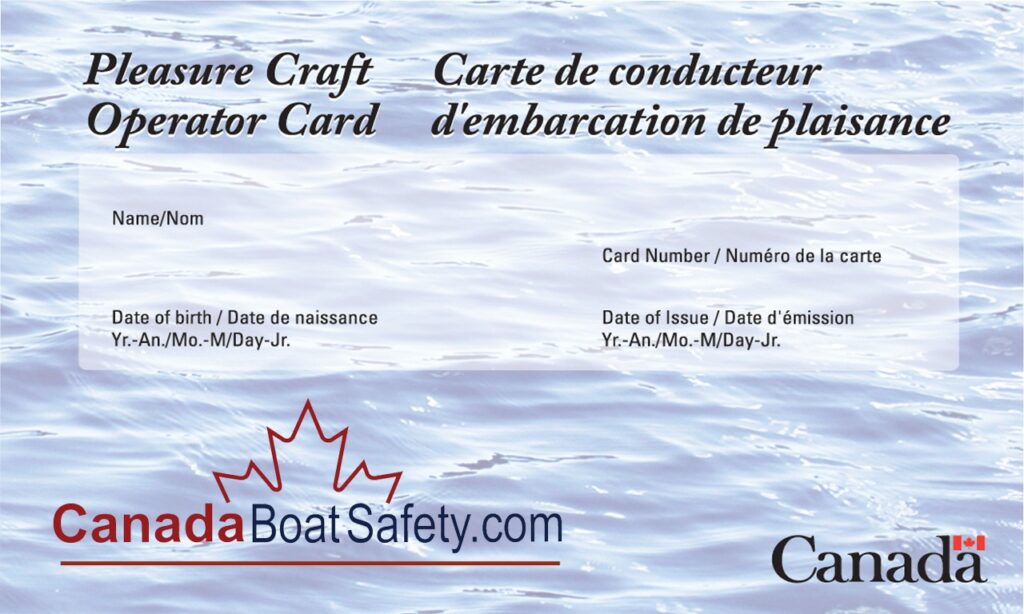
Understand the Requirement for a Boating Certificate
In Canada, the boating licence or boating license as it’s often called, is officially known as the Pleasure Craft Operator Card (PCOC), is mandatory for all operators of motorized boats, regardless of age, size of boat, or engine horsepower. The requirement came into effect in 1999, and it aims to reduce boating accidents and fatalities by ensuring boat operators have a basic level of knowledge and competency.
If you are caught driving a powered vessel, and do not have a Pleasure Craft Operator Card, this may result in a $250 fine.
Below are the Steps to get your Canadian Boating Certificate.
Step 1: Take a Boating Safety Course
To obtain a PCOC, you must first take a boating safety course and pass the associated exam. There are options for taking these courses:
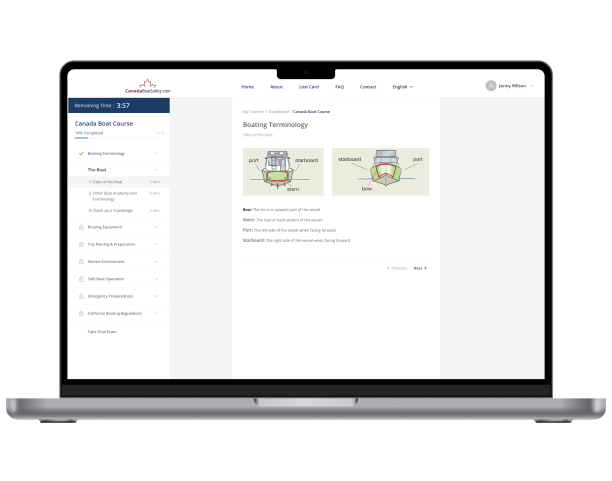
- Online Courses: Many Canadians opt for online courses, which are convenient and can be completed at your own pace (logging in and out, as your progress is saved). Providers such as CanadaBoatSafety.com or Sail Canada offer Transport Canada-approved courses.
- In-Class Courses: For those who prefer a classroom setting, in-class courses are available through various boating clubs and community organizations across Canada.
The boating safety course will cover essential topics such as navigation and operation laws, safety practices, emergency procedures, and environmental responsibilities. It’s crucial to absorb this information not only to pass the exam but also to ensure safe boating practices on the water.
Additional insight: How long is the Boating Safety Course? Transport Canada requires a minimum of 3 hours of study time.
Step 2: Take the Exam
After completing the course, you’ll need to pass the official Transport Canada boaters exam to earn your PCOC. The exam consists of 50 multiple-choice questions, and a score of at least 75% is required to pass. Online course providers such as CanadaBoatSafety.com offer unlimited retries at no additional cost. The exam can be taken online if you choose an online course or in person at the end of an in-class course.
Additional insight: How long is the Boating Certificate Exam? The official Transport Canada exam allows for 75 minutes total time.
Step 3: Get Your Card
Once you pass the exam, you’ll be issued a temporary Pleasure Craft Operator Card immediately, allowing you to go boating right away. Your official card will be mailed to you in a few weeks. This card is proof of your competency to operate a motorized boat anywhere in Canada, and it is good for life with no renewal required.
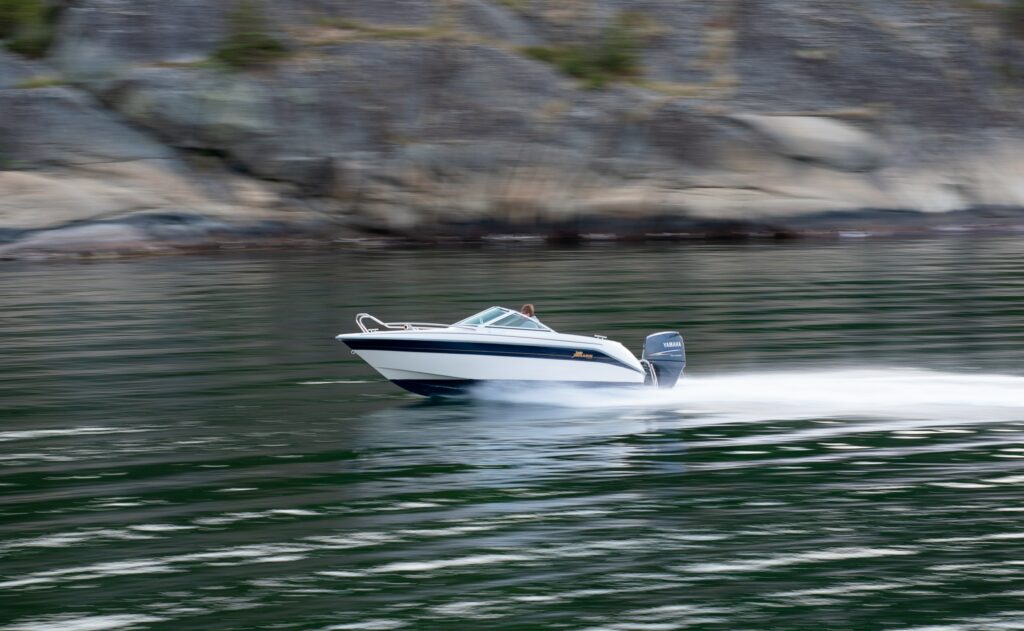
Additional Notes
Keep Your Card Accessible
When operating a boat, you must have your PCOC with you at all times as proof of your certification. Failure to present the PCOC when asked by law enforcement can result in a fine.
Continue Learning and Practicing
While the PCOC does not expire, boating technologies and regulations may change. It’s a good idea to stay updated with any changes in boating laws or safety procedures. Additional courses, such as SVOP and Roc-M Radio and certifications are also available for those interested in furthering their boating education and skills.
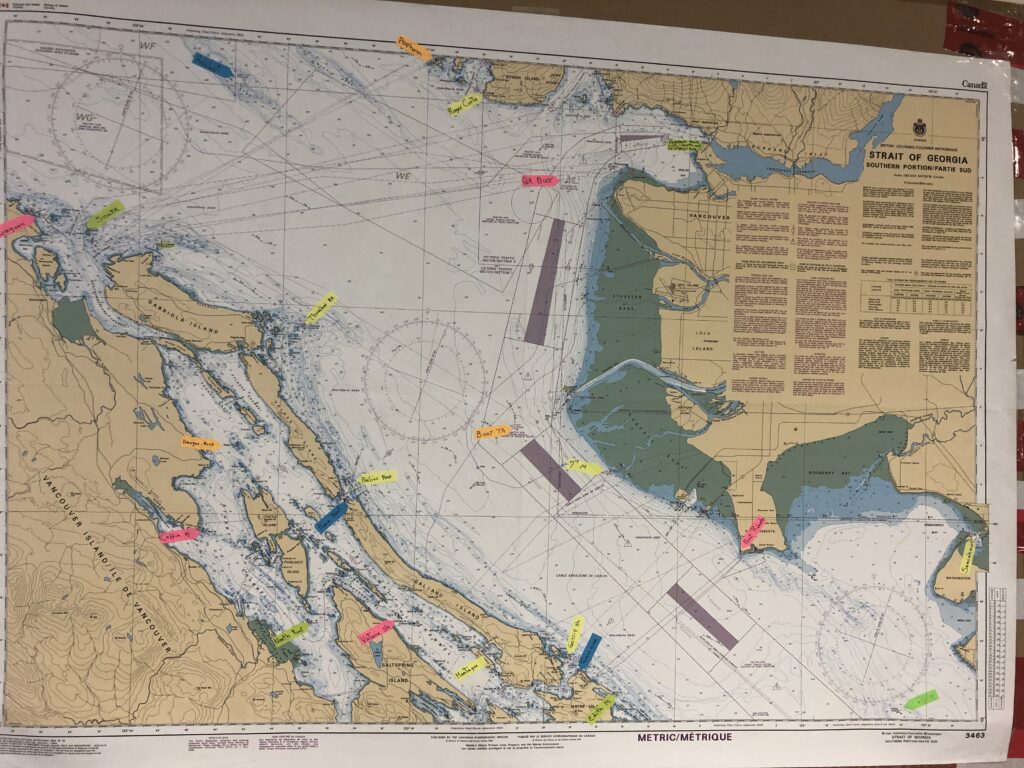
Conclusion
Obtaining your Pleasure Craft Operator Card is an essential step for any prospective boater in Canada, ensuring that you have the necessary knowledge and skills for safe and responsible boating. With your PCOC in hand, you’re ready to enjoy the vast and beautiful waterways of Canada, whether you’re fishing, exploring, or simply relaxing on the waves. Remember, safe boating is always in season, and the better prepared you are, the more enjoyable your boating experience will be.
